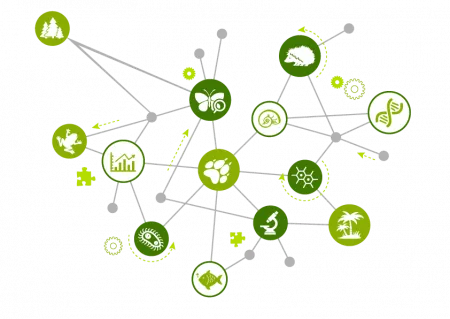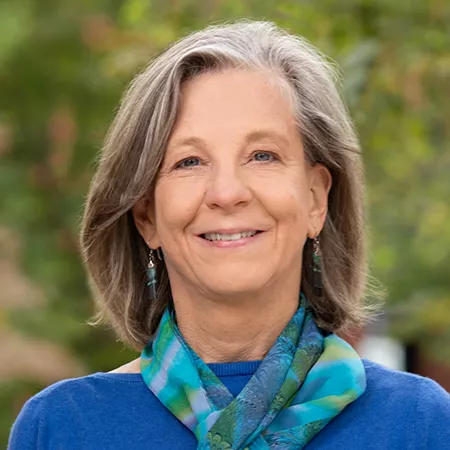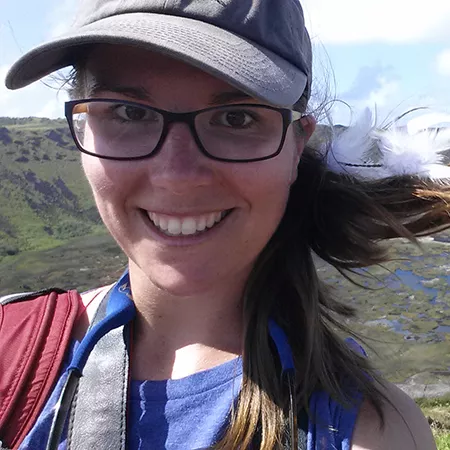Synthesis as a research method is frequently defined as the integration of multiple sources of data to generate new findings, to increase the statistical power of an analysis, or to broaden the spatial or temporal inference of results. Socio-environmental (S-E) research, however, brings together information from many disciplines and in many forms—including both quantitative and qualitative data. The three explainers below provide a high-level overview of common methods that S-E researchers use to synthesize both qualitative and quantitative data.
Quantitative Synthesis Methods for Sustainability: Data Integration
Qualitative Synthesis Methods: Critical Interpretive Reviews, Narrative Reviews, Expert Opinions
-
About the Presenters
Margaret A. Palmer
DirectorDr. Margaret A. Palmer is Director of SESYNC and a Distinguished University Professor at the University of Maryland, College Park. With a background in hydrology and ecology, Margaret contributes to testing and extending fundamental theory and empirical findings on aquatic ecosystem dynamics. She has worked extensively on the relationship between biodiversity and ecosystem processes, the biogeochemistry of streams and wetlands, and organism dispersal in aquatic ecosystems. She is an international expert on the restoration of streams and rivers and co-author of the book Foundations of...
Margaret A. Palmer
DirectorDr. Margaret A. Palmer is Director of SESYNC and a Distinguished University Professor at the University of Maryland, College Park. With a background in hydrology and ecology, Margaret contributes to testing and extending fundamental theory and empirical findings on aquatic ecosystem dynamics. She has worked extensively on the relationship between biodiversity and ecosystem processes, the biogeochemistry of streams and wetlands, and organism dispersal in aquatic ecosystems. She is an international expert on the restoration of streams and rivers and co-author of the book Foundations of Restoration Ecology. Margaret is also known for her work at the interface of water science and policy, having served as a technical advisor and innovator to help build solution-focused teams that solve problems with social, legal, policy and scientific aspects. She is extensively published (Google Scholar), has numerous awards, and remains actively engaged in science matters associated with national and local water policies and actions—particularly those associated with the Appalachians.
External Links:
https://scholar.google.com/citations?user=2nGk3QQAAAAJ&hl=enKelly Hondula
Research AffiliateDr. Kelly Hondula served on SESYNC's data science team from 2012 to 2021, supporting the diverse computational and analytical needs of interdisciplinary research teams. Kelly helped researchers take advantage of advancements in scientific computing to accelerate their research through highly iterative consulting, troubleshooting, and teaching. She contributed to more than a dozen multi-day, hands-on training courses and developed teaching material on web applications, geospatial analysis, data processing, and visualization. Her work promoting open science has been supported by the WikiMedia...
Kelly Hondula
Research AffiliateDr. Kelly Hondula served on SESYNC's data science team from 2012 to 2021, supporting the diverse computational and analytical needs of interdisciplinary research teams. Kelly helped researchers take advantage of advancements in scientific computing to accelerate their research through highly iterative consulting, troubleshooting, and teaching. She contributed to more than a dozen multi-day, hands-on training courses and developed teaching material on web applications, geospatial analysis, data processing, and visualization. Her work promoting open science has been supported by the WikiMedia Foundation and a fellowship from the non-profit organization rOpenSci.
Kelly's research focuses on the effects of water movement through landscapes, with an emphasis on improving water resource management and new monitoring technologies. She studies the interaction of hydrological and biogeochemical processes, especially in headwaters and the smallest water bodies. She is currently a postdoc with the National Ecological Observatory Network, which awarded her a postdoctoral fellowship to develop new techniques for mapping aquatic ecosystems and water quality. Kelly received her doctorate in Marine, Estuarine, and Environmental Sciences at the University of Maryland and holds bachelor’s and master’s degrees in Environmental Sciences from the University of Virginia.
External Links:
https://scholar.google.com/citations?user=Xdhvu9QAAAAJ&hl=en


